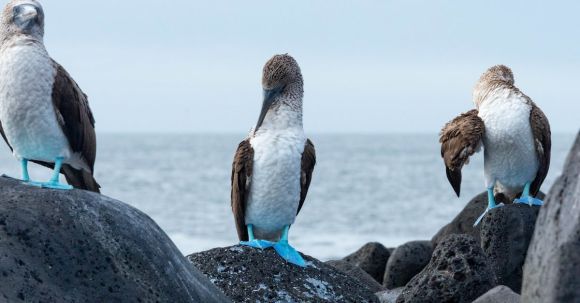The world’s oceans are facing a silent but deadly threat: ocean acidification. This phenomenon is caused by the increasing levels of carbon dioxide (CO2) in the atmosphere, which are absorbed by the oceans. As a result, the pH levels of the seawater are dropping, making it more acidic. This process has far-reaching consequences for marine life, from coral reefs to shellfish and everything in between. In this article, we will delve into the details of ocean acidification and explore its impact on the delicate balance of our oceans.
The Science Behind Ocean Acidification
To understand ocean acidification, we need to grasp the basics of the carbon cycle. When we burn fossil fuels such as coal, oil, and gas, large amounts of CO2 are released into the atmosphere. A significant portion of this CO2 is absorbed by the oceans, where it reacts with seawater to form carbonic acid. This acidification process reduces the availability of carbonate ions, which many marine organisms, including corals and shellfish, rely on to build their shells and skeletons.
The Impact on Coral Reefs
Coral reefs are one of the most vulnerable ecosystems to ocean acidification. The increased acidity of the water inhibits the growth of corals by reducing their ability to build and maintain their calcium carbonate structures. As a result, coral reefs become more susceptible to erosion and are less able to withstand the impacts of other stressors such as rising sea temperatures and pollution. The decline of coral reefs has dire consequences for the countless species that depend on them for food and shelter.
Shellfish and the Food Chain
Shellfish, including oysters, clams, and mussels, play a crucial role in marine ecosystems and the global food chain. These organisms rely on carbonate ions to form their shells, which protect them from predators and provide essential habitat. However, as ocean acidification reduces the availability of carbonate ions, shellfish struggle to build and maintain their shells. This weakens their defenses and makes them more vulnerable to predation and disease. The decline of shellfish populations can have cascading effects throughout the food chain, impacting other marine species and even humans who rely on seafood as a source of sustenance.
Disruption of Marine Biodiversity
Ocean acidification affects not only coral reefs and shellfish but also a wide range of marine organisms. From microscopic plankton to fish and marine mammals, the impacts of acidification can be felt throughout the entire ecosystem. As the pH levels drop, the survival and reproductive success of many species are compromised. Some organisms may struggle to adapt to the changing conditions, leading to population declines and even extinction. This disruption of biodiversity can have far-reaching consequences for the stability and resilience of our oceans.
Mitigating the Threat
While the threat of ocean acidification is daunting, there is still hope. Reducing our carbon emissions is key to slowing down the acidification process. Transitioning to renewable energy sources, promoting sustainable fishing practices, and implementing stricter regulations on pollution can all contribute to mitigating the threat. Additionally, supporting research and monitoring efforts can help us better understand the impacts of ocean acidification and develop strategies to adapt and protect vulnerable ecosystems.
In conclusion, ocean acidification is a pressing issue that demands our attention. The increasing levels of CO2 in the atmosphere are not only causing climate change but also threatening the delicate balance of our oceans. From coral reefs to shellfish and beyond, marine life is facing the detrimental effects of acidification. By understanding the science behind this phenomenon and taking action to reduce our carbon emissions, we can work towards preserving the health and biodiversity of our oceans for generations to come.
